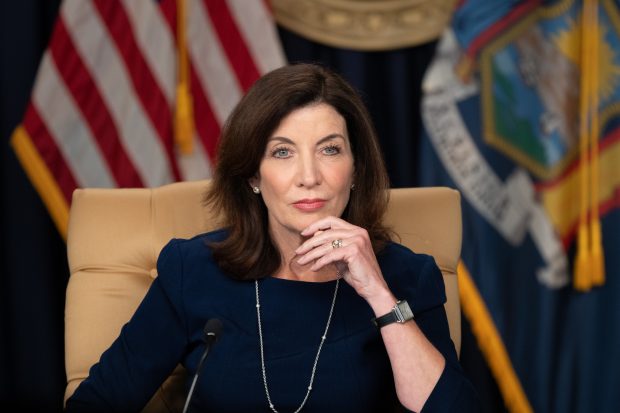July 21, 2025
New York weighs a Decision on Medical Aid in Dying
By MAYA KAUFMAN and KATELYN CORDERO for Polltico
New York Gov. Kathy Hochul is facing a political tripwire as she weighs the future of a decade-old bill that would allow terminally ill people to obtain life-ending medication.
The bill would make New York the 12th state in the country to legalize medical aid in dying.
Hochul is already assessing her options. Her office began meeting with key interest groups shortly after the Legislature’s end of session last month, signaling the Democratic governor may act sooner rather than later.
Advocates who fought for years to pass the measure are hopeful Hochul will sign the bill without demanding changes.
Among the most influential voices boosting the bill is the Medical Society of the State of New York, whose decision to back medical aid in dying last year was considered pivotal in getting the Legislature to pass it this year.
“We’ve learned from other states what’s important,” Jane Simpson, the society’s vice speaker and a palliative care physician, told POLITICO.
That includes a requirement that two doctors sign off on a patient’s request and a provision allowing doctors to not participate in the program.
The bill is set to land on Hochul’s desk as she gears up for a tough reelection contest next year, when she will likely see challengers from the left and the right.
One likely opponent, Republican Rep. Elise Stefanik, is already wielding the issue as a political brickbat.
“Instead of investing in palliative care, mental health support and life-affirming resources for those facing terminal illness, this legislation offers an immoral shortcut that devalues human life,” Stefanik said in a statement after the bill’s passage in the Assembly.
But hospice and palliative care providers have denounced arguments that pit the two treatment pathways against each other.
“This is not an independent decision on medical aid in dying — this is about quality of end-of-life care,” Jeanne Chirico, president of the Hospice & Palliative Care Association of New York State, told POLITICO.
